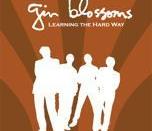Driscoll (2005) suggests that "learning is a complex affair" (p.2) and that although the results of learning can be viewed and measured, the actual process is not as tangible. Many different learning theories have been developed to explain learning, yet not one particular theory has been identified as the ideal learning theory for all educators and learners. A learning theory can be defined as "a set of laws or principles about learning" (p. 2) as offered by Driscoll. Several disciples have developed learning theories and philosophies in the attempt and hope of providing an explanation of how, what and why individuals learn and which instructional methods best meet the learning needs and goals of the learner. Behavioral psychologists, as noted by Driscoll, believe that learning can be understood in terms of both, environmental and behavioral observable events. Cognitive psychologists, on the other hand, find that learning is mediated by thought processes inside the learner, while social psychologists, suggest that learning is social in nature and relies on the interactions between the learner and his or her socio-cultural environment.
The purpose of this paper is to examine, describe, and align the writer's educational philosophy with personal educational and learning beliefs. In this paper, the writer will first discuss the key ideas and steps taken which helped build the writer's personal philosophy, which will in turn be followed by the personal philosophy on education and learning called Whole Systems Learning Philosophy. The personal learning philosophy will adapt ideas from other educational philosophies and theories as well as with a concept and process called Wraparound commonly used in social service settings. "Evaluating various learning theories for their validity and usefulness ultimately becomes a matter of developing a personal theory of learning and instruction" (Driscoll, 2005, p. 411). The conceptual, theoretical, and operational...


